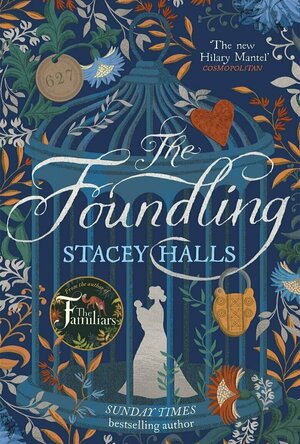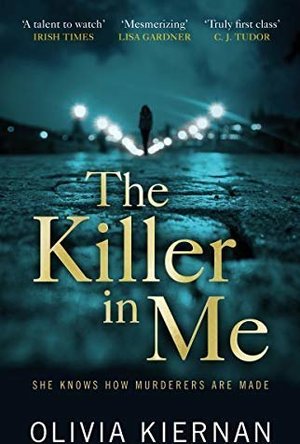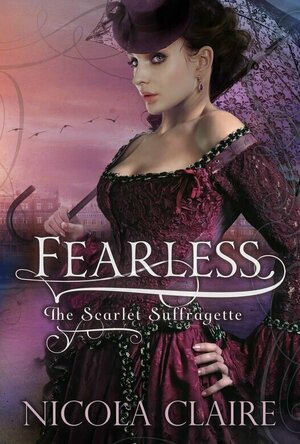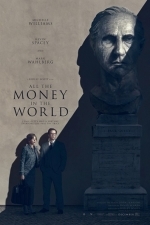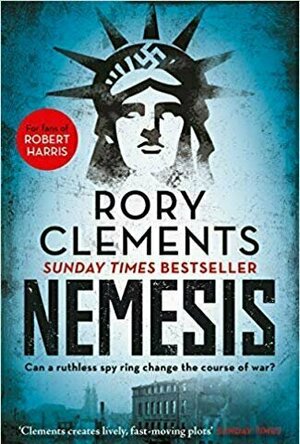Search
ClareR (6067 KP) rated The Foundling in Books
Jan 14, 2020
Gothic historical fiction - just my cup of tea!
The Foundling is set in Georgian London, and is packed full of secrets. No-one in it appears to be telling the truth.
Bess Bright, a hawker of shrimps on London’s streets, leaves her newborn, Clara, at the London Foundling Hospital with every intention of reclaiming her when she is older. When Bess does return having saved the money to pay for the care her daughter has received over the last six years, it’s to discover that Bess Bright has already claimed her baby the day after she left her. So someone has taken her daughter.
In a much wealthier part of London, a widow is persuaded by her doctor to take on a nursemaid for her daughter. The widow rarely leaves her home, and doesn’t let her daughter play outside. The child’s only time outside is the journey to church at the Foundling Hospital every Sunday. The new nursemaid, along with the doctor, convince the widow that she should allow the child some times outside to play, and some fresh air.
This is just the tip of the iceberg though. The widow is a complex, damaged character who tries to hide from her past - but as secrets have a habit of doing, hers catch up with her. The nursemaid is instrumental in this.
The descriptions in this book are all so vivid - I was transported into the contrasting world of Georgian London and those who lived in poverty living alongside (streets away from) those who lived with unmentionable amounts of money. The oppression in the widows household was overwhelming: claustrophobic, even.
I loved everything about this book - I loved the gothic, suspense-filled atmosphere, and spent a large part of the book with my heart in my mouth!
Another wonderful book by Stacey Halls, and one I’d highly recommend reading!
Many thanks to The Pigeonhole for the reading AND the listening experience (I loved the narrators on the audio book!), and Stacey Halls for reading along, too!
Bess Bright, a hawker of shrimps on London’s streets, leaves her newborn, Clara, at the London Foundling Hospital with every intention of reclaiming her when she is older. When Bess does return having saved the money to pay for the care her daughter has received over the last six years, it’s to discover that Bess Bright has already claimed her baby the day after she left her. So someone has taken her daughter.
In a much wealthier part of London, a widow is persuaded by her doctor to take on a nursemaid for her daughter. The widow rarely leaves her home, and doesn’t let her daughter play outside. The child’s only time outside is the journey to church at the Foundling Hospital every Sunday. The new nursemaid, along with the doctor, convince the widow that she should allow the child some times outside to play, and some fresh air.
This is just the tip of the iceberg though. The widow is a complex, damaged character who tries to hide from her past - but as secrets have a habit of doing, hers catch up with her. The nursemaid is instrumental in this.
The descriptions in this book are all so vivid - I was transported into the contrasting world of Georgian London and those who lived in poverty living alongside (streets away from) those who lived with unmentionable amounts of money. The oppression in the widows household was overwhelming: claustrophobic, even.
I loved everything about this book - I loved the gothic, suspense-filled atmosphere, and spent a large part of the book with my heart in my mouth!
Another wonderful book by Stacey Halls, and one I’d highly recommend reading!
Many thanks to The Pigeonhole for the reading AND the listening experience (I loved the narrators on the audio book!), and Stacey Halls for reading along, too!
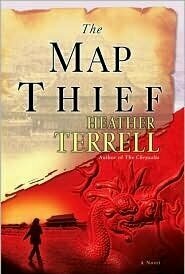
The Map Thief
Book
Beijing, China, 1421: It is a momentous time for the Ming Dynasty. Honoring the completion of the...
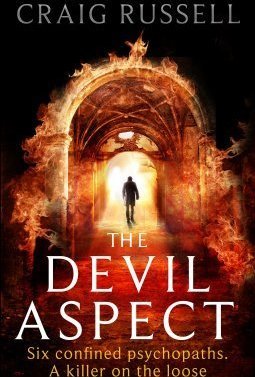
The Devil Aspect
Book
A terrifying novel set in Czechoslovakia in 1935, in which a brilliant young psychiatrist takes his...
gothic historical fiction thriller suspense murder
Billie Wichkan (118 KP) rated The Killer in Me (Frankie Sheehan, #2) in Books
May 22, 2019
Detective Chief Superintendent Frankie Sheehan does not wish to linger on the grisly scene before her eyes. Two mutilated corpses. In a church. In Clontarf. Her profiling background screams one fact: this is just the beginning of a sickening message.
Meanwhile, a 17-year-old case is playing out on a TV documentary, the convicted professing his innocence and historical police errors being exposed daily in the media. Frankie's superior, commissioner Donna Hegarty, makes no bones about who she expects to clean things up - both in terms of past mishandlings and the present murders.
But not everyone working the cases wants the truth to come out. And the corridors of power have their own vested interest. Soon Frankie pinpoints just what is making her so nervous: the fact that anyone could be the next victim when justice is the killer.
The Killer In Me is a fast-paced thriller in which lies are safer than the truth, the past is never far from the present, and the ability to kill could well, it seems, live in everyone.
I would like to thank Netgalley and Quercus Books for an advance copy of The Killer in Me.
The Killer in Me is the second novel to feature Dublin based Detective Chief Superintendent Frankie Sheehan of An Garda Síochánas Bureau for Serious Crime.
I could use a lot of words to describe this book and how much I liked it, but I want to summarize it in few words: it's amazing and gripping.
This novel is fast paced and full of twists and turns which just ramp the suspense level up.
I was gripped from the start and read this book in one go. It is really well written and very cleverly thought out.
Dark and intense, this story is told wonderfully well.
I found the characters very interesting and also full of depth.
Lot of red herrings about to keep you guessing all the way to the end.
Highly Recommend.
I would like to thank Netgalley and Quercus Books for an advance copy of The Killer in Me; this is my honest voluntary review.
Meanwhile, a 17-year-old case is playing out on a TV documentary, the convicted professing his innocence and historical police errors being exposed daily in the media. Frankie's superior, commissioner Donna Hegarty, makes no bones about who she expects to clean things up - both in terms of past mishandlings and the present murders.
But not everyone working the cases wants the truth to come out. And the corridors of power have their own vested interest. Soon Frankie pinpoints just what is making her so nervous: the fact that anyone could be the next victim when justice is the killer.
The Killer In Me is a fast-paced thriller in which lies are safer than the truth, the past is never far from the present, and the ability to kill could well, it seems, live in everyone.
I would like to thank Netgalley and Quercus Books for an advance copy of The Killer in Me.
The Killer in Me is the second novel to feature Dublin based Detective Chief Superintendent Frankie Sheehan of An Garda Síochánas Bureau for Serious Crime.
I could use a lot of words to describe this book and how much I liked it, but I want to summarize it in few words: it's amazing and gripping.
This novel is fast paced and full of twists and turns which just ramp the suspense level up.
I was gripped from the start and read this book in one go. It is really well written and very cleverly thought out.
Dark and intense, this story is told wonderfully well.
I found the characters very interesting and also full of depth.
Lot of red herrings about to keep you guessing all the way to the end.
Highly Recommend.
I would like to thank Netgalley and Quercus Books for an advance copy of The Killer in Me; this is my honest voluntary review.
Lyndsey Gollogly (2893 KP) rated Fearless (Scarlet Suffragette #1) in Books
Apr 21, 2021
54 of 250
Kindle
Fearless ( Scarlet suffragette book 1)
By Nicola Claire
Once read a review will be written via Smashbomb and link posted in comments
Nicola Claire's captivating new Gothic romance series introduces a dark and sinister early settler New Zealand at the end of the nineteenth century - brightened by a fearless and talented heroine and a loyal and secretive police inspector...
Free spirit. Brilliant. A Liability?
Doctor Anna Cassidy has been trained by the best; the former Chief Surgeon for the Auckland Police Force. She knows how to dissect a body. She knows how to treat any ailment. And she knows how to find a cause of death.
But society is not ready for a female surgeon.
Fighting for what she believes in has been ingrained in Anna since she was a young child. But the battles she faces now are not all based on equality. A murderer stalks her fellow Suffragettes and the police inspector in charge of the case could be Anna's downfall.
Experienced. Dedicated. Something to hide?
Inspector Andrew Kelly holds duty and honour in the highest regard. His role as a detective proves just that; he never stops until justice is served. Love is something he has forsaken, for reasons he'd rather you didn't know.
But Anna is not a woman a man can ignore.
Fighting his instincts with cold determination is something Kelly has become accustomed to. But a murderer is loose in his adopted city, bringing memories to the fore of a killer who walked in the shadows of Whitechapel, and shining light on a dark past the Inspector is trying hard to forget.
A gritty, twisted, and authentic Victorian romantic suspense, sure to rip you apart... just like old Jack.
This had all of my favourite things! Gruesome murders linked to Jack the Ripper, historical romance , strong female lead and a very good story. Although the murderer was quite clear to me from the beginning I absolutely loved reading it play out! Definitely worth a try if you like any of the things I mentioned!
Kindle
Fearless ( Scarlet suffragette book 1)
By Nicola Claire
Once read a review will be written via Smashbomb and link posted in comments
Nicola Claire's captivating new Gothic romance series introduces a dark and sinister early settler New Zealand at the end of the nineteenth century - brightened by a fearless and talented heroine and a loyal and secretive police inspector...
Free spirit. Brilliant. A Liability?
Doctor Anna Cassidy has been trained by the best; the former Chief Surgeon for the Auckland Police Force. She knows how to dissect a body. She knows how to treat any ailment. And she knows how to find a cause of death.
But society is not ready for a female surgeon.
Fighting for what she believes in has been ingrained in Anna since she was a young child. But the battles she faces now are not all based on equality. A murderer stalks her fellow Suffragettes and the police inspector in charge of the case could be Anna's downfall.
Experienced. Dedicated. Something to hide?
Inspector Andrew Kelly holds duty and honour in the highest regard. His role as a detective proves just that; he never stops until justice is served. Love is something he has forsaken, for reasons he'd rather you didn't know.
But Anna is not a woman a man can ignore.
Fighting his instincts with cold determination is something Kelly has become accustomed to. But a murderer is loose in his adopted city, bringing memories to the fore of a killer who walked in the shadows of Whitechapel, and shining light on a dark past the Inspector is trying hard to forget.
A gritty, twisted, and authentic Victorian romantic suspense, sure to rip you apart... just like old Jack.
This had all of my favourite things! Gruesome murders linked to Jack the Ripper, historical romance , strong female lead and a very good story. Although the murderer was quite clear to me from the beginning I absolutely loved reading it play out! Definitely worth a try if you like any of the things I mentioned!
Gareth von Kallenbach (980 KP) rated Hunter Killer (2018) in Movies
Jul 2, 2019
The Hunt for Red October. Crimson Tide. Das Boot. These are the some of the greatest submarine movies ever made. Hunter Killer is not on that list.
That’s not to say that this movie isn’t entertaining. Gerard Butler appears alongside a surprisingly well stocked cast including Academy award winner Gary Oldman, Emmy winner Michael Nyqvist, Common and Linda Cardellini to create a gripping experience that is high action and suspense throughout the entire film. But where it excels in action it falls short in story and character development.
The action begins right off the bat; and within 5 minutes of the opening credits two submarines are destroyed and the world is on the brink of World War 3. Commander Joe Glass (Butler), despite never having captained a submarine before, is field promoted into command of the USS Arkansas, considered a Hunter Killer submarine, and sent to investigate the missing subs. During the course of his investigation, he discovers that not all is what it seems. Meanwhile, Rear Admiral John Fisk (Common) and NSA Agent Jayne Norquist (Cardellini) are at the Pentagon with some issues of their own. Using a Navy Seal recon team, they’ve discovered that a Russian military coup is in progress and the only way to prevent a war is to rescue the captive Russian president. In the end, all three teams need to work together in order to steer the two countries away from being driven into a nuclear confrontation by a rogue Russian defense minister
To its credit, this movie is what it is. Pure, driven action with few breaks and absolutely no subplots or side stories. Despite there being three main teams within the film (the submarine, the recon team and the Pentagon team) all three are focused on the same objective and there is very little deviation from their respective missions. There’s no accompanying love story or unshown historical conflict between two characters. There’s not even much in terms of character development beyond the typical “old crew learns to trust new and unproven leader”. This is as close to a pure action movie as you’re going to get. Every single line, scene and character is used to further an explosion in some way or another.
This is the first big project for director Donovan Marsh who, prior to this, hasn’t had anything close to this quality of cast or this kind of budget. Hunter Killer has actually been tossed around the studios for a number of years with other notable directors including Tony Scott (Crimson Tide) and Antoine Fuqua (Training Day) previously attached to the script. While it would have been exciting to see what either of those two could have done with this film, Marsh does manage to keep things alive by maintaining that constant stream of action and suspense. Unfortunately, he doesn’t seem to be able to elevate the picture above that basic level. Despite an all-star cast who performed excellently, the movie remains essentially one-dimensional.
If you’re looking for a tense (Crimson Tide), intelligent (Hunt for Red October) submarine movie that looks a little more like a political thriller and a little less like an advertisement for the Navy, then this movie is not for you. However, if you’re in need of a bit more action and a lot less subtext, then Hunter Killer makes for a great night out full of explosions, amusing jokes and better acting than the dialogue really deserved.
That’s not to say that this movie isn’t entertaining. Gerard Butler appears alongside a surprisingly well stocked cast including Academy award winner Gary Oldman, Emmy winner Michael Nyqvist, Common and Linda Cardellini to create a gripping experience that is high action and suspense throughout the entire film. But where it excels in action it falls short in story and character development.
The action begins right off the bat; and within 5 minutes of the opening credits two submarines are destroyed and the world is on the brink of World War 3. Commander Joe Glass (Butler), despite never having captained a submarine before, is field promoted into command of the USS Arkansas, considered a Hunter Killer submarine, and sent to investigate the missing subs. During the course of his investigation, he discovers that not all is what it seems. Meanwhile, Rear Admiral John Fisk (Common) and NSA Agent Jayne Norquist (Cardellini) are at the Pentagon with some issues of their own. Using a Navy Seal recon team, they’ve discovered that a Russian military coup is in progress and the only way to prevent a war is to rescue the captive Russian president. In the end, all three teams need to work together in order to steer the two countries away from being driven into a nuclear confrontation by a rogue Russian defense minister
To its credit, this movie is what it is. Pure, driven action with few breaks and absolutely no subplots or side stories. Despite there being three main teams within the film (the submarine, the recon team and the Pentagon team) all three are focused on the same objective and there is very little deviation from their respective missions. There’s no accompanying love story or unshown historical conflict between two characters. There’s not even much in terms of character development beyond the typical “old crew learns to trust new and unproven leader”. This is as close to a pure action movie as you’re going to get. Every single line, scene and character is used to further an explosion in some way or another.
This is the first big project for director Donovan Marsh who, prior to this, hasn’t had anything close to this quality of cast or this kind of budget. Hunter Killer has actually been tossed around the studios for a number of years with other notable directors including Tony Scott (Crimson Tide) and Antoine Fuqua (Training Day) previously attached to the script. While it would have been exciting to see what either of those two could have done with this film, Marsh does manage to keep things alive by maintaining that constant stream of action and suspense. Unfortunately, he doesn’t seem to be able to elevate the picture above that basic level. Despite an all-star cast who performed excellently, the movie remains essentially one-dimensional.
If you’re looking for a tense (Crimson Tide), intelligent (Hunt for Red October) submarine movie that looks a little more like a political thriller and a little less like an advertisement for the Navy, then this movie is not for you. However, if you’re in need of a bit more action and a lot less subtext, then Hunter Killer makes for a great night out full of explosions, amusing jokes and better acting than the dialogue really deserved.

Rooftoppers
Book
This is the winner of the Blue Peter Book Award and the Waterstones Children's Book Prize, and...
BookwormMama14 (18 KP) rated The Secret of Pembrooke Park in Books
Jan 2, 2019
Mystery, murder, treasure and romance. All of which can be found in Julie Klassen’s most recent book, The Secret of Pembrooke Park. This book will have you turning pages until the wee hours of morning.
England, 1817, Abigail Foster and her family are in the midst of a financial crisis that could ruin them forever, when an offer to let Pembrooke Park is brought before them. The house has been vacant for almost 20 years, and there is a lot of clean up needed before they can move in, but the terms seem too good to be true. This is just the opportunity the Foster’s need so they can begin to rebuild their lives. Abigail and her father travel to the village of Caldwell to begin fixing up the property. It is not long before whispers and rumors make it to Abigail’s ears regarding the previous inhabitants. Whispers of treasure and murder and ghosts. What happened here so many years ago? Will Abigail be able to uncover the truth? Clues are found and mysterious letters are sent to Abigail from what appears to be someone who lived at Pembrooke Park. Does the miniature doll’s house hold the key to where the treasure was hidden? Abigail befriends the previous steward’s daughter, Leah Chapman, who has her own mysteries of the past that she is concealing. William Chapman, Leah’s sister and the local pastor, seems to become interested in Abigail, but will Miss Foster’s sister, Louisa sweep him off his feet as she does to every man she meets? And Mr. Chapman is not the only man that has taken an interest in Abigail. Truth, faith and love are the primary factors guiding our players. “Lay not up for yourselves treasures upon earth, where moth and rust doth corrupt.”
I have not enjoyed a book so much as I enjoyed reading The Secret of Pembrooke Park. I stayed up late many a night reading when I should have been sleeping. Most definitely a page turner if I ever read one. I cannot praise Mrs. Klassen enough for her fine works. The historical accuracy, the depth, the feeling. Creative liberties are used in regards to classes intermingling, but that’s what makes her books so intriguing. The suspense and mystery was mild (compared to the thrillers my husband reads), but it was enough to make my head turn at the sounds of my own house creaking in the night. I am looking forward to her next release. I told my husband that I want the rest of Julie Klassen’s books for Christmas this year!
As a part of their blogger review program, I received a free copy of The Secret of Pembrooke Park from Bethany House Publishers. All opinions expressed are mine alone.
England, 1817, Abigail Foster and her family are in the midst of a financial crisis that could ruin them forever, when an offer to let Pembrooke Park is brought before them. The house has been vacant for almost 20 years, and there is a lot of clean up needed before they can move in, but the terms seem too good to be true. This is just the opportunity the Foster’s need so they can begin to rebuild their lives. Abigail and her father travel to the village of Caldwell to begin fixing up the property. It is not long before whispers and rumors make it to Abigail’s ears regarding the previous inhabitants. Whispers of treasure and murder and ghosts. What happened here so many years ago? Will Abigail be able to uncover the truth? Clues are found and mysterious letters are sent to Abigail from what appears to be someone who lived at Pembrooke Park. Does the miniature doll’s house hold the key to where the treasure was hidden? Abigail befriends the previous steward’s daughter, Leah Chapman, who has her own mysteries of the past that she is concealing. William Chapman, Leah’s sister and the local pastor, seems to become interested in Abigail, but will Miss Foster’s sister, Louisa sweep him off his feet as she does to every man she meets? And Mr. Chapman is not the only man that has taken an interest in Abigail. Truth, faith and love are the primary factors guiding our players. “Lay not up for yourselves treasures upon earth, where moth and rust doth corrupt.”
I have not enjoyed a book so much as I enjoyed reading The Secret of Pembrooke Park. I stayed up late many a night reading when I should have been sleeping. Most definitely a page turner if I ever read one. I cannot praise Mrs. Klassen enough for her fine works. The historical accuracy, the depth, the feeling. Creative liberties are used in regards to classes intermingling, but that’s what makes her books so intriguing. The suspense and mystery was mild (compared to the thrillers my husband reads), but it was enough to make my head turn at the sounds of my own house creaking in the night. I am looking forward to her next release. I told my husband that I want the rest of Julie Klassen’s books for Christmas this year!
As a part of their blogger review program, I received a free copy of The Secret of Pembrooke Park from Bethany House Publishers. All opinions expressed are mine alone.
Bob Mann (459 KP) rated All the Money in the World (2017) in Movies
Sep 29, 2021
You can’t take it with you.
The big talking point of this Ridley Scott film is not of course the film itself but the fact that the disgraced Kevin Spacey (“Baby Driver“) was ‘airbrushed’ out of the movie, replaced by the legend that is Christopher Plummer. With that background, and the fact that the re-shoot only took 9 days (NINE DAYS!!!!), I must admit to having been a tad scornful when Plummer was nominated for a Best Supporting Actor Oscar. “Oh” I thought “…it’s Judi Dench’s minimalistic performance in ‘Shakespeare In Love’ all over again”.
But actually on watching the film I take it all back. Plummer’s role is not, like Dench’s, a mere eight minutes of screen time, but extensive and pivotal. Not only was his nomination richly deserved (his performance is cold, eerie and magnificent!) but Ridley Scott deserved an award for getting so much great footage in the can in such a short space of time.
The film tells the true story of the feckless John Paul Getty III (Charlie Plummer, no relation), grandson to the richest man in the world John Paul Getty I. While in the Piazza Farnese in Rome, JPGIII is kidnapped and a $17 million reward is sought for his release. Whilst claiming to love his offspring, the tycoon is basically a ‘tight git’ and the film concerns the battle of the young heir’s mother Gail (Michelle Williams, “Manchester By The Sea”; “The Greatest Showman”) to persuade JPG1 and his right-hand negotiator Fletcher Chase (Mark Wahlberg, “Patriot’s Day”, “Deep Water Horizon“) to shake the money tree* and get JPGIII released.
*To be fair, JPGIII hasn’t exactly helped his case as it emerges he had previously joked about getting himself kidnapped to get his grandfather’s ransom money!
As I didn’t remember the historical outcome of this, I was in a suitable amount of suspense as to where it would go. It is clear though, from the wiki version of the story, that the ending was significantly ‘sexed-up’ for the movie.
Ridley Scott sensibly balances the views of the Getty’s with the views of the kidnappers, with a semi-sympathetic Italian (Romain Duris) being the focus of those scenes in rural Calabria.
But it’s the scenes with Plummer that really engage. The man as portrayed is an enigma, eccentrically washing his own clothes to save a few pennies and always (ALWAYS) trying to get 20% more on even the most personal of decisions. It makes me really intrigued to see Spacey’s portrayal now… I wonder if the alternate cut might make it onto the Blu-ray? I actually think though that Plummer was the better choice for this: I could see Spacey bringing far too much of Frank Underwood to the role.
Elsewhere in the cast, I think Michelle Williams and Mark Wahlberg are both solid without ever being spectacular and it’s nice to see the talented Andrew Buchan (“The Mercy“; “Broadchurch”) in a more memorable big screen outing as JPG2: his drug-addled son (and JPG3’s father).
Overall, it’s an interesting watch and had me sufficiently engaged to want to watch it again. But without Plummer’s role it wouldn’t really amount to nearly as much.
But actually on watching the film I take it all back. Plummer’s role is not, like Dench’s, a mere eight minutes of screen time, but extensive and pivotal. Not only was his nomination richly deserved (his performance is cold, eerie and magnificent!) but Ridley Scott deserved an award for getting so much great footage in the can in such a short space of time.
The film tells the true story of the feckless John Paul Getty III (Charlie Plummer, no relation), grandson to the richest man in the world John Paul Getty I. While in the Piazza Farnese in Rome, JPGIII is kidnapped and a $17 million reward is sought for his release. Whilst claiming to love his offspring, the tycoon is basically a ‘tight git’ and the film concerns the battle of the young heir’s mother Gail (Michelle Williams, “Manchester By The Sea”; “The Greatest Showman”) to persuade JPG1 and his right-hand negotiator Fletcher Chase (Mark Wahlberg, “Patriot’s Day”, “Deep Water Horizon“) to shake the money tree* and get JPGIII released.
*To be fair, JPGIII hasn’t exactly helped his case as it emerges he had previously joked about getting himself kidnapped to get his grandfather’s ransom money!
As I didn’t remember the historical outcome of this, I was in a suitable amount of suspense as to where it would go. It is clear though, from the wiki version of the story, that the ending was significantly ‘sexed-up’ for the movie.
Ridley Scott sensibly balances the views of the Getty’s with the views of the kidnappers, with a semi-sympathetic Italian (Romain Duris) being the focus of those scenes in rural Calabria.
But it’s the scenes with Plummer that really engage. The man as portrayed is an enigma, eccentrically washing his own clothes to save a few pennies and always (ALWAYS) trying to get 20% more on even the most personal of decisions. It makes me really intrigued to see Spacey’s portrayal now… I wonder if the alternate cut might make it onto the Blu-ray? I actually think though that Plummer was the better choice for this: I could see Spacey bringing far too much of Frank Underwood to the role.
Elsewhere in the cast, I think Michelle Williams and Mark Wahlberg are both solid without ever being spectacular and it’s nice to see the talented Andrew Buchan (“The Mercy“; “Broadchurch”) in a more memorable big screen outing as JPG2: his drug-addled son (and JPG3’s father).
Overall, it’s an interesting watch and had me sufficiently engaged to want to watch it again. But without Plummer’s role it wouldn’t really amount to nearly as much.
Ivana A. | Diary of Difference (1171 KP) rated Nemesis in Books
Feb 3, 2020
<a href="https://diaryofdifference.com/">Blog</a>; | <a href="https://www.facebook.com/diaryofdifference/">Facebook</a>; | <a href="https://twitter.com/DiaryDifference">Twitter</a>; | <a href="https://www.instagram.com/diaryofdifference/">Instagram</a>; | <a href="https://www.pinterest.co.uk/diaryofdifference/pins/">Pinterest</a>;
<b>The Tom Wilde Series</b>
#1 <a href="https://www.goodreads.com/review/show/2780335366">Corpus</a>; - Not Read Yet
#2 <a href="https://www.goodreads.com/review/show/2780335377">Nucleus</a>; - Not Read Yet
#3 <a href="https://www.goodreads.com/review/show/2664038091">Nemesis</a>; - ★★★★★
<img src="https://diaryofdifference.com/wp-content/uploads/2019/04/New-blog-banner-13.png"/>;
<b><i>Nemesis is the third book from the Tom Wilde series by Rory Clements. I haven't read the previous two books, and I also haven't read any books from Rory Clements before. I received this book through ReadersFirst, and I will be honest, I was quite reluctant to read it. You already know my opinion on reading sequels before reading the previous books - but I went in blind in this book.</i></b>
The blue cover is simply gorgeous and I knew it was a thriller and a mystery, so I decided this was enough to get me going. If this book review ever captures your attention, I advise you to also go in blind. I think going blind made me enjoy this book even more.The fact that this is a third book in a series doesn't mean anything. The only similarity with the other books is the main character. Almost the same basis as Dan Brown's series and his professor Robert Langdon. The books are entirely standalones.
It is very hard to reveal what the plot is about without spoiling the fun. Tom Wilde is a university professor and one of his very talented students, Marcus, has left to join the International Brigades in Spain. Now, two years after, he is in trouble, and Tom helps him come home.
Meanwhile, numerous things happen, involving World War 2 Politics and propaganda, and in these times, no one knows who to trust. And when Tom Wilde finds himself in great danger, who will help him? And who does he needs to be afraid from? Has maybe helping Marcus been his greatest mistake?
Nemesis is full of suspense from the very first chapter, and the thing I loved the most about it was that the chapters are quite short, and always leave you hanging, hungry to find out more. Every word that Rory Clements types had a meaning and a purpose in this book, and that was the bit I admired the most.
The time setting revolves around the Second World War - a subject I don't often read about. I can't judge about the historical fiction element. However I do know that while I am a person that doesn't enjoy war books, this one struck me in a nice way. The war setting was very well written, and you could even feel the atmosphere around it. The ending was pleasantly surprising and it involved a mystery I could simply not resist.
<b>I will definitely read more books by Rory Clements, as I really enjoy the writing. If you enjoy thrillers and if you are a fan of Dan Brown, you will probably enjoy Nemesis a lot!</b>
<a href="https://diaryofdifference.com/">Blog</a>; | <a href="https://www.facebook.com/diaryofdifference/">Facebook</a>; | <a href="https://twitter.com/DiaryDifference">Twitter</a>; | <a href="https://www.instagram.com/diaryofdifference/">Instagram</a>; | <a href="https://www.pinterest.co.uk/diaryofdifference/pins/">Pinterest</a>;
<b>The Tom Wilde Series</b>
#1 <a href="https://www.goodreads.com/review/show/2780335366">Corpus</a>; - Not Read Yet
#2 <a href="https://www.goodreads.com/review/show/2780335377">Nucleus</a>; - Not Read Yet
#3 <a href="https://www.goodreads.com/review/show/2664038091">Nemesis</a>; - ★★★★★
<img src="https://diaryofdifference.com/wp-content/uploads/2019/04/New-blog-banner-13.png"/>;
<b><i>Nemesis is the third book from the Tom Wilde series by Rory Clements. I haven't read the previous two books, and I also haven't read any books from Rory Clements before. I received this book through ReadersFirst, and I will be honest, I was quite reluctant to read it. You already know my opinion on reading sequels before reading the previous books - but I went in blind in this book.</i></b>
The blue cover is simply gorgeous and I knew it was a thriller and a mystery, so I decided this was enough to get me going. If this book review ever captures your attention, I advise you to also go in blind. I think going blind made me enjoy this book even more.The fact that this is a third book in a series doesn't mean anything. The only similarity with the other books is the main character. Almost the same basis as Dan Brown's series and his professor Robert Langdon. The books are entirely standalones.
It is very hard to reveal what the plot is about without spoiling the fun. Tom Wilde is a university professor and one of his very talented students, Marcus, has left to join the International Brigades in Spain. Now, two years after, he is in trouble, and Tom helps him come home.
Meanwhile, numerous things happen, involving World War 2 Politics and propaganda, and in these times, no one knows who to trust. And when Tom Wilde finds himself in great danger, who will help him? And who does he needs to be afraid from? Has maybe helping Marcus been his greatest mistake?
Nemesis is full of suspense from the very first chapter, and the thing I loved the most about it was that the chapters are quite short, and always leave you hanging, hungry to find out more. Every word that Rory Clements types had a meaning and a purpose in this book, and that was the bit I admired the most.
The time setting revolves around the Second World War - a subject I don't often read about. I can't judge about the historical fiction element. However I do know that while I am a person that doesn't enjoy war books, this one struck me in a nice way. The war setting was very well written, and you could even feel the atmosphere around it. The ending was pleasantly surprising and it involved a mystery I could simply not resist.
<b>I will definitely read more books by Rory Clements, as I really enjoy the writing. If you enjoy thrillers and if you are a fan of Dan Brown, you will probably enjoy Nemesis a lot!</b>
<a href="https://diaryofdifference.com/">Blog</a>; | <a href="https://www.facebook.com/diaryofdifference/">Facebook</a>; | <a href="https://twitter.com/DiaryDifference">Twitter</a>; | <a href="https://www.instagram.com/diaryofdifference/">Instagram</a>; | <a href="https://www.pinterest.co.uk/diaryofdifference/pins/">Pinterest</a>;
